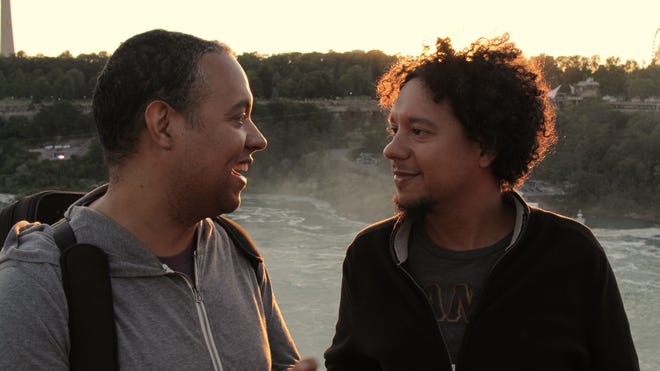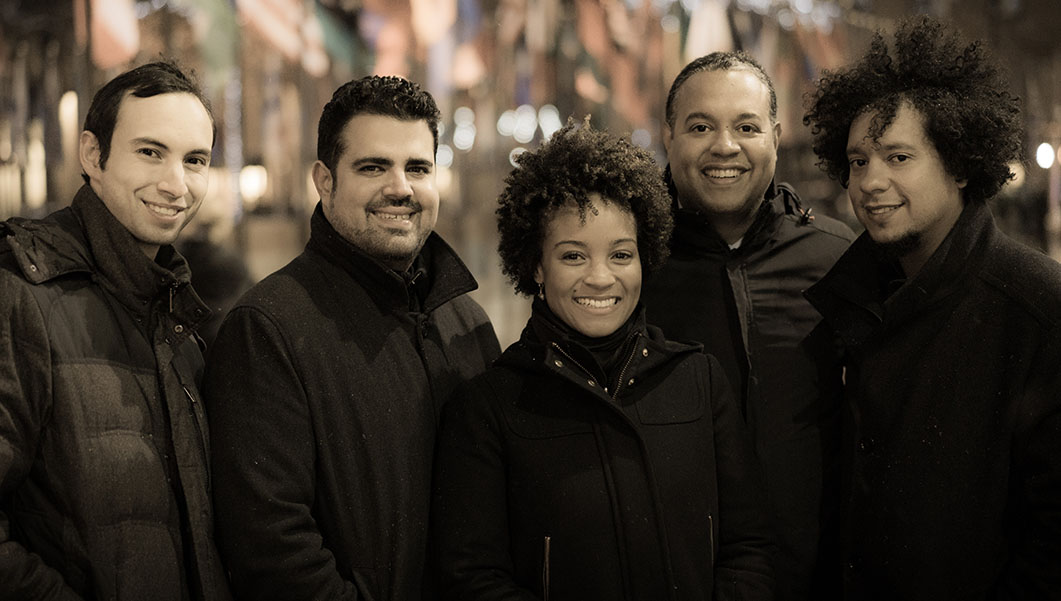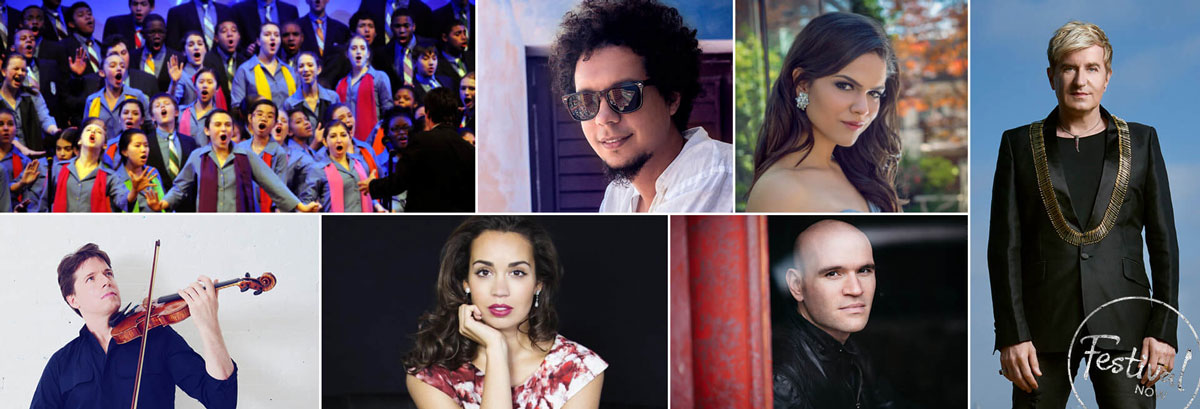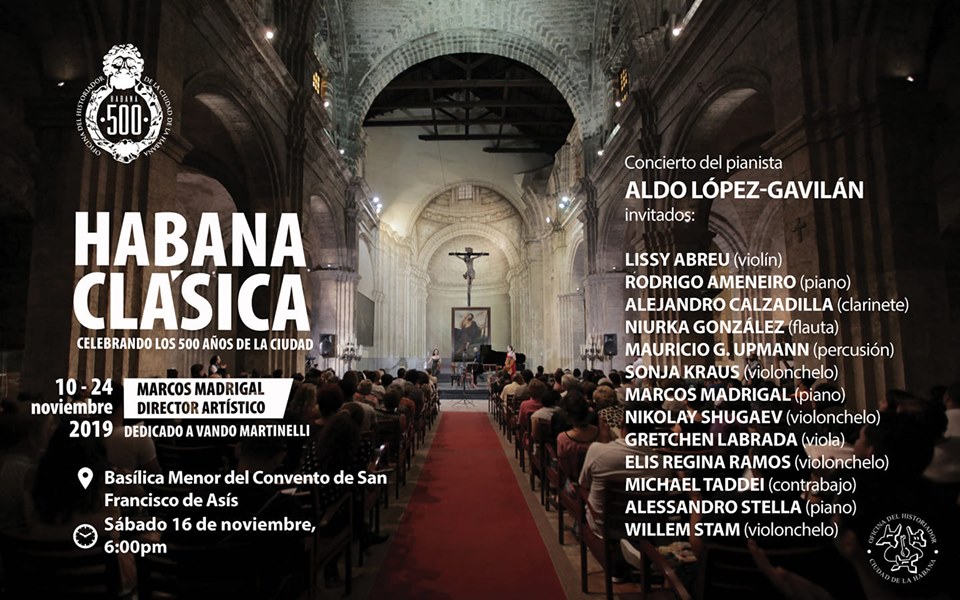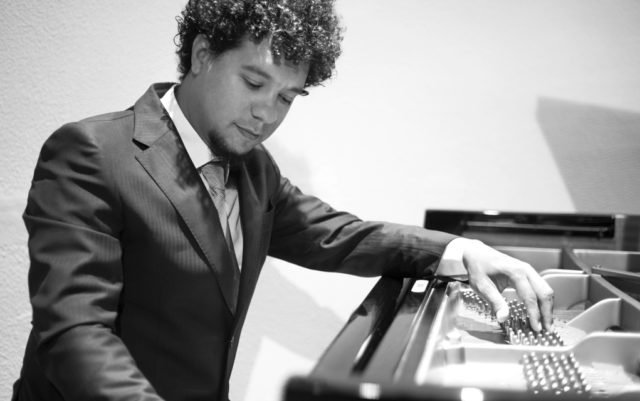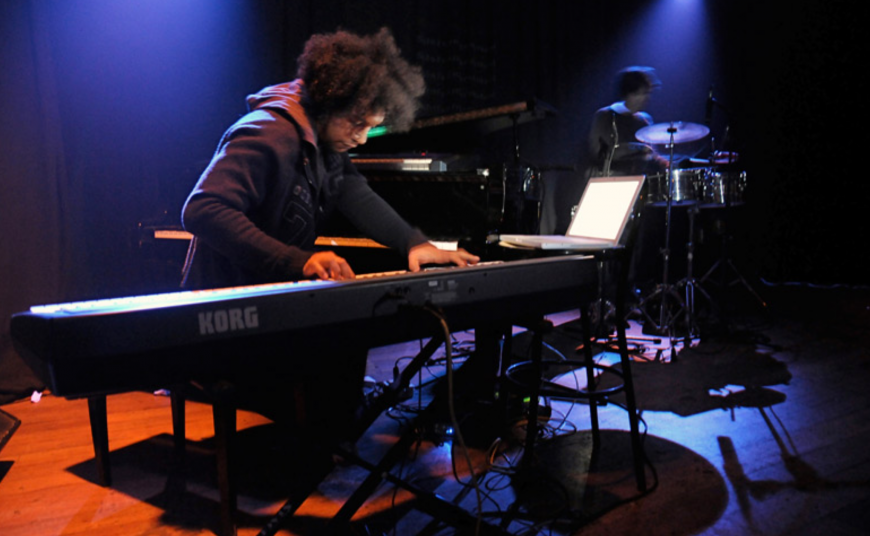
Jeff Kaliss on July 20, 2021
When we connected with Cuban pianist-composer Aldo López-Gavilán last week, he was being driven by his local host, arts patron Rick Swig, to a rehearsal for Festival Napa Valley’s Novack Concert for Kids, at an amphitheater at the Culinary Institute of America’s Copia site in downtown Napa. López-Gavilán, featured at the festival over several years and in more of this year’s events, would be performing three winning compositions by Napa Valley public school teens and would also accompany the young audience’s experience of composer-vocalist Nia Imani Franklin, a former Miss America, singing Puccini’s “Quando m’en vo.”
The 41-year-old Havana resident is well acquainted with the delights of youthful exposure to music. Raised in Cuba by esteemed conductor Guido López-Gavilán and the late concert pianist Teresita Junco, alongside his 6-year-older brother and violinist Ilmar, young Aldo started chording on the family piano at age 4 and began studying music in school, as is the case with many Cubans, at 7. A Danny Kaye International Children’s Award, created by UNICEF, had him performing an original composition in Holland when he was 11, and the next year he made his professional debut on piano with the Orquesta Sinfónica de Matanzas.
López-Gavilán matured his improvisational skills alongside his classical studies and appeared at the Havana International Jazz Festival; he was declared “simply a genius, a star” by Cuban jazz titan Chucho Valdés. López-Gavilán has recorded a half-dozen albums covering his multi-genre repertoire and has toured globally, sometimes in the company of the Harlem String Quartet, where his brother Ilmar is principal violinist. His infectious exuberance and romanticism are showcased in both his compositions and in performances of his and others’ works.
The longed-for reunion of Aldo with Ilmar, who has long lived in New York, is celebrated in the documentary film Los Hermanos, directed by Marcia Jarmel and Ken Schneider and screened as part of Festival Napa Valley, as well as earlier this year by San Francisco’s Commonwealth Club. It will be seen on PBS stations in September. López-Gavilán is fluent in English, some accent and idiosyncratic usage extant.
I understand you’ll be doing a Q&A with the kids following the music today. They might be a bit curious about, and envious of, your early start in Cuba.
I guess that’s true, though I know you have music schools for kids.
When Rick and I were kids, we had more in the way of music education in our public schools. Now we have the wonderful Crowden School in Berkeley and the pre-college program at the San Francisco Conservatory, but they’re both private. Is it public in Cuba?
Absolutely. In Cuba, there are zero private schools.
Some Cuban musicians I’ve interviewed told me that though Western classical music was maintained after the communists took control in 1959, that other genres, like American jazz and pop, were repressed or discouraged in your country.
Those musicians were probably referring to the time before I was born. I’ve been able to be surrounded by all kinds of music, including hip-hop. But in Cuba, jazz is way more popular than many other genres of American music, especially because of the [Havana Jazz] Festival running every year [inaugurated in 1978]. And there are fusions with Cuban dance forms, and other styles.
You appeared at that festival with Chucho Valdés. Wow! Were you onstage with him?
I was 14, and we actually had a two-piano duet, with members of the legendary band Irakere [founded by Valdés in 1973]. And I performed, together with Chucho, one of my earlier compositions, called “Black Magic.”
Early on, did you find yourself composing in classical forms or jazz or some kind of fusion?
It was a combination. In general, my way of composing has a lot to do with improvisation, with jazz techniques and phrasing, harmonies. But the structure is somewhat close to concert music, meaning it has solid classic structure. It’s all written down, and it should be played as written. But when I’m performing, there are substantial parts with improvisation. [He’s also improvised during Gershwin’s Rhapsody in Blue.]
Can we talk about your piece Emporium, which you’re performing later here, with Festival Orchestra Napa? Tell me about the piece and how it sits within the genres.
Let’s start by saying that this is a piano concerto, with full orchestra and piano solo and the classic structure: three movements. But of course, it’s very influenced by jazz and by Cuban and African culture. The whole thing is based on a theme that I dedicated to my daughters [Adriana and Andrea, with his wife, conductor Daiana Garcia] for their birthday, when they were 9. I improvised this theme [formed on an alluring rippling ninth chord] in the middle of the night, just to give them a surprise. [Adriana and Andrea both won the top award last year in the Pequeño Pianista category of the inaugural Concurso Latinoamericano de Piano.] Later, I started to play what would be the first movement with my jazz trio. It was more like a jazz-structured piece, where I could play the theme, then improvise around that. Later on, I decided to orchestrate it [as a concerto], because I was invited by the late great conductor Joel Revzen to perform at Classical Tahoe [in 2017, where López-Gavilán also appeared with Joshua Bell and in jazz settings]. You find that main theme from the first movement throughout the whole entire work, but with variations. I didn’t tell you that my daughters are twins, so they are always told that they’re so alike, but in a lot of details they are very personalized, and I tried to achieve that in my work.
Do tell us more. Will this piece be recorded?
We are planning to record it properly next year. The second movement is more lyrical, it tries to blend two different styles that I think are connected. One is the Black church music, like spirituals, the other is what we call in Cuba the vieja trova tradicional, beautiful romantic songs with amazing poetic lyrics, always describing love and beauty. I tried to embrace the idea of uniting the cultures. The final movement has more dramatic, unsettling rhythms, changing keys, more jazz elements [and reggaeton]. It’s very exciting but also carries the beautiful things from the first movement.
Any place for Cuban percussion in the orchestra?
There is not. I try hard to make it more universal. That’s one of the goals of my career: to not try to impose my culture over the true message you want to send, which is the beauty and deepness of emotional and spiritual language.
And the love of family seems a standard for you. Last night, the Festival presented the movie about you and your brother Ilmar, Los Hermanos. For those of us who haven’t seen it yet, tell us a bit about it and your take on it.
First of all, I’m very happy that the film was shown here, in the Cameo Cinema [in St. Helena]. I want to especially give thanks to my friend Rick Swig, who was the mind behind this. It’s hard for me to describe, because it’s about me and my family, but it’s basically about love to the family, love to music. And it describes many events of our lives, and how we got to reunite in the U.S., to tour and perform in different cities of this country, with my brother and the Harlem Quartet.
Were you two separated for a long time?
He went to study his violin in Russia when he was 14 years old and I was only 8, so he left home. Then he studied in Madrid, then came to California, and he finished his studies at the Manhattan School of Music. He basically stayed here, made a life and a family. He would go to Cuba to visit our family every year, but he was only visiting, we were not living together.
Does the documentary talk about the lifestyle differences between the two countries?
A little bit. In a very nice way, though. It’s all covered in love.
What’s been your reaction to the news over the past couple of weeks about protests in Cuba? Are American media looking for another way to make communism look bad?
First of all, I will say that I am very sad to see my people suffering so much violence between them. The people of Cuba have suffered scarcity for a long time. And, of course, there are different interests from the Cuban government and the U.S. government, especially in the Florida community, which I don’t want to talk about, because I don’t have full knowledge of that thing. What I can say is that I wish this leads to a better solution for our country.
A solution from the Cuban government?
I’m not sure that they can or are willing to. But I am not a politician, and I don’t know many of the laws that make the government do what it does. What I do know is that the people need to be heard, though there are some who just want to take advantage and make chaos. And I’m against any brutal response of the military and the police.
Is there anything in Cuba that’s like Napa?
Oh, I don’t think so! [laughs]
You’ve become a regular in Napa, and you also played the San Francisco Jazz Festival in 2014.
It was a beautiful set of concerts, in the Joe Henderson Lab, a piano solo recital, and I really enjoyed the response of that wonderful audience.
What did you play for them?
Many of my own solo piano compositions. I knew I was in a jazz venue, so there was a lot of improvisation, but you will always find in my compositions this fusion of concert and jazz and Cuban music; it doesn’t matter where I do it or how I do it. [For an example, a musical quote from the venerable Cuban son “El manisero” is audible in López-Gavilán’s performance of his Pan con Timba, with the Harlem Quartet.]
Anywhere we should be looking for you, later?
Oh, yes! I’ll be touring with the Quartet and my brother, and you’ll find that information on my website, https://aldomusica.com. [The Harlem Quartet, with Aldo López-Gavilán, will perform at Kohl Mansion on Oct. 31, and the brothers will appear as a duo for Cal Performances at Zellerbach Hall on Jan. 23, 2022.]


